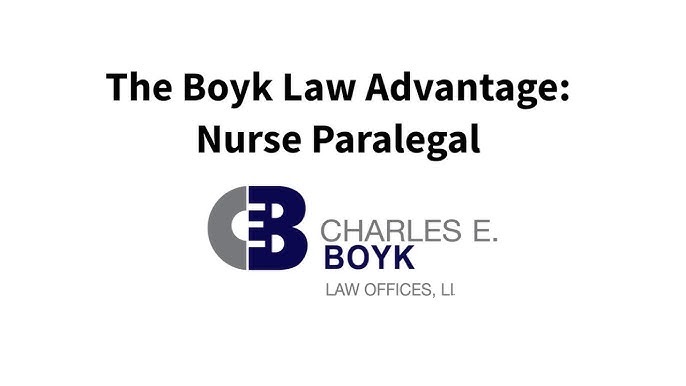Advantage law refers to a variety of legal principles, strategies, and tactics that are used to benefit a party in a legal context. This term can be applied to many areas of law, including business, civil rights, family law, and criminal defense. The core idea behind advantage law is to gain an upper hand through legal means, often to secure favorable outcomes in disputes, negotiations, and legal proceedings. In this article, we will explore the concept of advantage law, its applications, and its implications in various legal scenarios.
Table of Contents
What is Advantage Law?
Advantage law encompasses legal strategies and practices that provide a strategic benefit to a person or entity involved in a legal dispute or negotiation. The goal is to use legal mechanisms to leverage power, resources, or knowledge to achieve the best possible outcome for the client.
Advantage law can be applied in various legal fields, from corporate law to family law, and can involve anything from contract negotiation to the use of specific legal tools like lawsuits, motions, or defenses. The underlying principle is that the law provides mechanisms through which individuals or organizations can gain an advantage in legal proceedings.
Key Areas Where Advantage Law Is Applied
1. Business Law and Corporate Strategy
In business law, advantage law plays a crucial role in negotiating contracts, mergers, acquisitions, and intellectual property protection. Corporations use their understanding of advantage law to secure favorable terms in contracts or to navigate complex regulatory environments. This can involve leveraging legal loopholes, tax strategies, or negotiating clauses that benefit the corporation.
For example, in mergers and acquisitions, companies often use advantage law to structure deals that provide them with tax breaks or minimize liabilities. Understanding regulatory requirements and market forces can also help companies avoid costly mistakes and protect their interests in legal disputes.
2. Civil Litigation and Personal Injury
In civil litigation, individuals and businesses often use advantage law to secure favorable settlements in personal injury or contract disputes. Attorneys apply their knowledge of local laws, court procedures, and negotiation tactics to gain an advantage over the opposing party. This may include filing specific motions or leveraging legal precedents to make a case stronger.
For example, in personal injury cases, lawyers may use medical experts or evidence to establish liability and calculate damages, ensuring that their clients receive the maximum compensation. Insurance companies also employ advantage law to reduce payouts, using legal maneuvers and fine print in contracts to limit claims.
3. Family Law and Divorce
In family law, advantage law can be applied to protect the rights of one party, such as in divorce settlements, child custody battles, or property division cases. Family law attorneys use their expertise to advocate for their clients’ interests, often leveraging legal strategies to ensure favorable outcomes in terms of child custody, spousal support, and asset division.
For example, in a divorce case, one party may use advantage law to ensure that assets are divided fairly or that child custody arrangements are in their favor. In contentious cases, attorneys can employ strategies such as gathering evidence or using psychological evaluations to sway court decisions.
4. Criminal Defense
In criminal law, advantage law plays a critical role in securing the best possible outcome for the defendant. Criminal defense lawyers use legal tools like motions, pleas, and evidentiary challenges to challenge charges and reduce sentences. By leveraging the law, they may be able to get charges reduced, dismissed, or result in a favorable verdict for their clients.
For example, a defense attorney may use constitutional defenses, such as the violation of the right to a fair trial, to dismiss charges or to appeal a conviction. The use of procedural tactics, such as suppressing evidence or challenging the admissibility of testimony, can also give the defense an advantage.
The Role of Advantage Law in Negotiation
1. Negotiation Tactics
In many legal cases, a successful outcome can be achieved through negotiation rather than going to court. Advantage law plays a pivotal role in legal negotiations, where parties seek to settle disputes without resorting to litigation. By leveraging their understanding of the law, attorneys can present offers or counteroffers that favor their clients while still remaining within the bounds of legal propriety.
2. Mediation and Arbitration
Advantage law can also be applied in alternative dispute resolution (ADR) methods such as mediation and arbitration. In these settings, both parties may rely on legal counsel to represent their interests, especially when a binding decision is made by a third-party arbitrator or mediator. Here, the knowledge of legal precedents, contract law, and case law can serve as powerful tools to secure an advantage.
For example, in commercial arbitration, legal experts can present evidence and craft arguments that highlight their client’s strengths while downplaying any potential weaknesses. This is often achieved through an in-depth knowledge of both the arbitration rules and applicable laws.
Benefits of Advantage Law
1. Favorable Outcomes
The primary benefit of using advantage law is that it increases the chances of achieving a favorable outcome. By employing legal strategies that are designed to strengthen one’s position, parties can improve their chances of securing the best possible result, whether in a business deal, personal injury case, or criminal defense.
For example, a business owner who understands intellectual property law can protect their innovations and brand by securing patents and trademarks, thereby gaining a competitive advantage in the marketplace.
2. Cost Efficiency
Advantage law can also contribute to cost savings by allowing parties to avoid costly litigation or unnecessary legal hurdles. By using legal tools and strategies effectively, it is possible to resolve disputes quickly and efficiently, minimizing the amount of time and money spent in the legal process.
For example, early settlement of a contract dispute can save both parties from extensive litigation costs. Additionally, using tax strategies or asset protection techniques can prevent financial losses in the long run.
3. Legal Protections
In many cases, advantage law provides legal protections that would otherwise be unavailable to individuals or businesses. These protections can help safeguard a party’s assets, rights, and reputation. Understanding the legal framework and using it strategically can help ensure that an individual or organization is adequately protected.
For instance, in estate planning, lawyers use advantage law to protect a client’s estate from excessive taxes or from being disputed by heirs. This ensures that the assets are distributed according to the client’s wishes.
Potential Drawbacks of Advantage Law
1. Ethical Concerns
One of the potential drawbacks of advantage law is the ethical implications that come with using legal strategies. While the goal of advantage law is to maximize the client’s benefit, it is important to ensure that these strategies do not cross the line into unethical or illegal behavior. Exploiting loopholes or using questionable tactics can undermine the integrity of the legal system.
2. Complexity
The application of advantage law often requires deep legal expertise and a thorough understanding of the specific area of law. Not all legal professionals are equipped with the knowledge or resources to successfully implement these strategies. This complexity can make it difficult for some individuals to fully take advantage of the law in their specific case.
Conclusion
Advantage law is a vital concept that helps individuals and organizations use legal mechanisms to achieve favorable outcomes. Whether in business negotiations, civil litigation, criminal defense, or family law, understanding how to leverage the law to gain an upper hand can provide significant benefits, including favorable settlements, cost savings, and legal protections. However, it is important to approach advantage law with caution to avoid ethical pitfalls and ensure that strategies are used responsibly and legally.
By utilizing advantage law effectively, parties involved in legal disputes can maximize their chances of success, while minimizing potential risks. Understanding the importance of legal strategies and how to implement them can ultimately make a huge difference in the outcome of a case.
Disclaimer
The information provided in this article is for general informational purposes only and should not be construed as legal advice. The content is based on a broad understanding of legal principles related to advantage law and its applications in various legal fields. Every legal situation is unique, and outcomes may vary depending on individual circumstances.
It is strongly recommended that you consult with a qualified legal professional or attorney for advice tailored to your specific case or situation. The author and publisher do not accept any liability for actions taken based on the information provided in this article. Legal decisions should always be made with the guidance of a licensed attorney.




